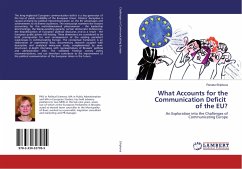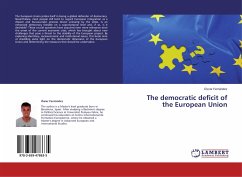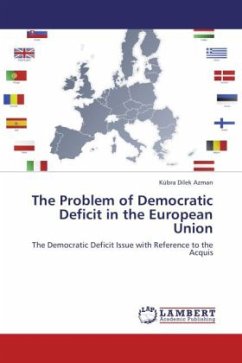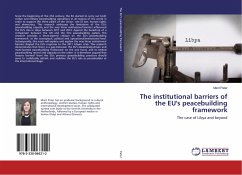
What Accounts for the Communication Deficit of the EU?
An Exploration into the Challenges of Communicating Europe
Versandkostenfrei!
Versandfertig in 6-10 Tagen
49,99 €
inkl. MwSt.

PAYBACK Punkte
25 °P sammeln!
The long-neglected European communication deficit is a key generator of the loss of public credibility of the European Union. Citizens' deception is caused primarily by political miscommunication on the EU advantages and achievements to its diverse audiences. The manuscript examines the reasons accounting for this multi-dimensional phenomenon - the leadership shortcomings, the blame-avoiding game(s), certain democratic deficiencies, the depoliticization of European political discourse, and as a result - the European public sphere still missing. These dimensions are considered to be both prereq...
The long-neglected European communication deficit is a key generator of the loss of public credibility of the European Union. Citizens' deception is caused primarily by political miscommunication on the EU advantages and achievements to its diverse audiences. The manuscript examines the reasons accounting for this multi-dimensional phenomenon - the leadership shortcomings, the blame-avoiding game(s), certain democratic deficiencies, the depoliticization of European political discourse, and as a result - the European public sphere still missing. These dimensions are considered to be both prerequisites for and consequences of the existing persistent weaknesses in communicating Europe. The conceptual framework is an elaboration of experiential data, documentary research coupled with descriptive and analytical many-case study, complemented by semi-structured, in-depth interviews with representatives of Brussels' political and administrative elite. The validated findings convey policyrecommendations, and can therefore contribute to the improvement of the political communication of the European Union in the future.












